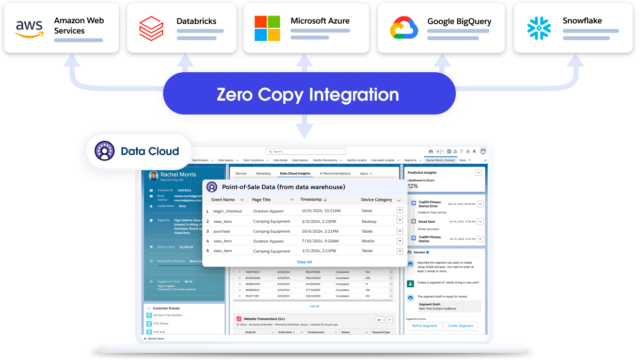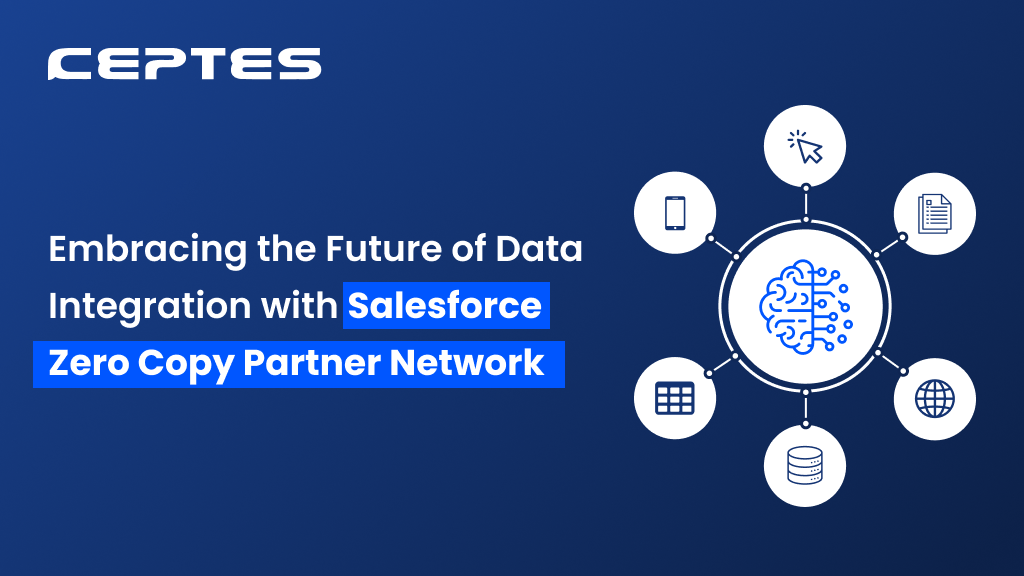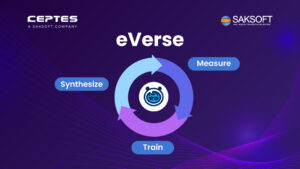Salesforce has recently rolled out its Zero Copy Partner Network, an innovative approach designed to revolutionize how organizations handle data integration and management. This announcement is poised to make significant waves in the tech community, particularly for businesses looking to streamline their data processes, enhance security, and drive more effective insights from their data assets.
What is Zero Copy Integration?
The Zero Copy integration addresses one of the most pressing challenges in data management: the need to move and copy data across different systems for integration purposes. Traditional methods often involve creating multiple copies of data, leading to issues such as increased storage costs, data inconsistency, and heightened security risks. Salesforce’s Zero Copy framework eliminates the need for data replication by enabling secure, bidirectional integration directly with the Salesforce Data Cloud.
This innovative data integration approach ensures that data remains in its original location, yet is accessible in real-time across various applications and platforms. This not only reduces the risk associated with data duplication but also enhances the efficiency and speed of data operations.
What are the Key Benefits of Zero Copy Integration?
1. Enhanced Data Security and Compliance:
Data security is a paramount concern for organizations, especially with increasing regulatory demands. The Zero Copy integration ensures that data is accessed and shared securely without being moved. This significantly reduces the risk of data breaches and ensures compliance with data protection regulations. By keeping data within its original secure environment, organizations can better manage access controls and audit trails.
2. Real-Time Data Accessibility:
Digital economy demands businesses to be fast-paced and competitive to make smarter decisions. Real-time data access is crucial for making smart, informed decisions. Zero Copy integration allows businesses to access up-to-date data across different systems without the latency associated with data transfers. This is particularly beneficial for industries such as finance, healthcare, and retail, where timely data access can drive better customer experiences and operational efficiency.
3. Act on data seamlessly throughout the workflow:
With Salesforce Data Cloud integration, you can use data from anywhere to enhance your work processes. Once data is in the cloud, it becomes part of Salesforce’s system and can be used for things like business intelligence, AI insights, marketing, and creating a seamless customer experience across different departments.
For example, imagine a shipment gets delayed and this information is updated in an external database. Salesforce Data Cloud triggers an alert to an account manager on Slack. This way, the account manager can quickly contact the client to inform them about the delay and take any necessary steps to manage the situation. This integration ensures that everyone is always up-to-date and can act on the latest information promptly.
4. Cost Efficiency:
Reducing the need for multiple data copies translates to significant cost savings. Organizations can cut down on storage costs and reduce the overhead associated with maintaining and synchronizing duplicate datasets. Furthermore, by streamlining data integration processes, companies can allocate resources more efficiently and focus on strategic initiatives rather than data management tasks.
5. Improved Data Quality and Consistency:
Maintaining multiple copies of data often leads to inconsistencies and errors. With Zero Copy integration, data remains in its source system, ensuring that all applications and users are accessing the same, accurate data. This consistency is vital for analytics, reporting, and operational processes that rely on accurate information.

Source
Practical Applications of Zero Copy Integration:
Practical applications of Zero Copy integration are vast and transformative across multiple industries.
1. Financial Services:
Financial institutions can leverage Zero Copy integration to streamline their operations and enhance customer experiences. By integrating data from various sources such as core banking systems, CRM, and third-party services, banks can provide personalized services and real-time financial insights without compromising data security.
2. Healthcare and Life Sciences:
In healthcare, accessing and integrating patient data from different sources is critical for delivering personalized care. Zero Copy integration allows healthcare providers to unify patient data from electronic health records (EHRs), lab systems, and wearables, ensuring that healthcare professionals have comprehensive, up-to-date information for better patient outcomes.
3. Retail and E-commerce:
Retailers can use Zero Copy integration to unify customer data from in-store systems, online platforms, and marketing channels. This holistic view enables more effective personalization strategies, inventory management, and customer engagement initiatives. Real-time data access also supports dynamic pricing and promotion strategies based on current market trends and customer behavior.
4. Manufacturing and Supply Chain:
Manufacturers can use Zero Copy integration to link data from IoT devices, ERP systems, and supply chain tools, making production and supply chains more efficient. This real-time data access helps them see production stats and inventory levels instantly, leading to better demand forecasting and preventing stock outs or overproduction. This means they can manage resources more effectively and respond quickly to changes in demand.
Salesforce’s Commitment to Innovation
Salesforce’s Zero Copy Partner Network is part of its broader commitment to innovation and enhancing its Data Cloud capabilities. The company continues to invest in technologies that provide businesses with powerful tools to manage their data more effectively. By fostering a secure and efficient data integration ecosystem, Salesforce helps organizations unlock the full potential of their data.
In conclusion, the Zero Copy Partner Network represents a significant advancement in data integration technology. By eliminating the need for data replication, Salesforce is enabling businesses to achieve greater efficiency, security, and insight from their data assets. This initiative underscores Salesforce’s leadership in the data management space and its dedication to helping organizations navigate the complexities of the digital age.


















